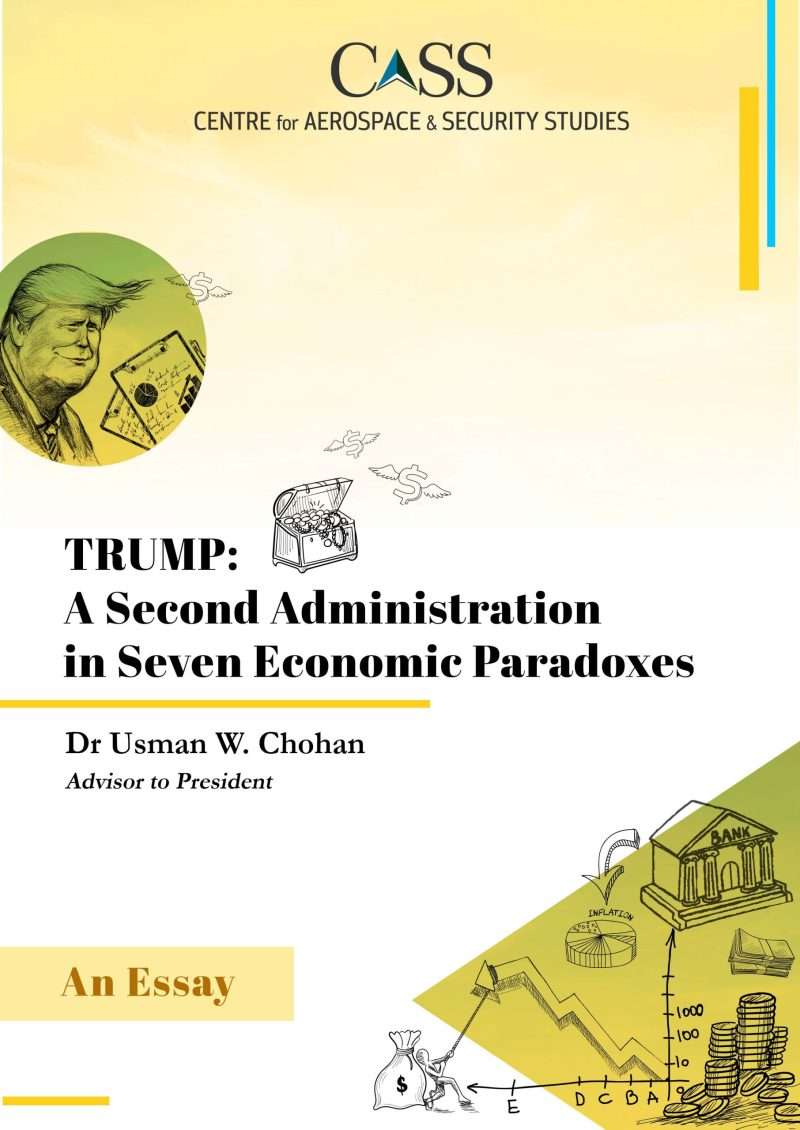The aim of this essay is to shed light on the economic and political implications of a second administration under Donald Trump, by exploring seven key paradoxes that may characterise his approach to complex socioeconomic, sociopolitical, and geoeconomic decisions. In highlighting these paradoxes, the essay aims to emphasise the paradoxical modes of governance and conflicting ambitions that the Trump administration will wrest with based on the multiplicity of its stated objectives. In particular, Trump’s blend of populism, protectionism, and nationalism will manifest in policies that may work at cross-purposes, because they emanate from disparate ideological sources and interest groups: the nativism of Project 2025, the disenchantment and rebellion of the downtrodden, the pragmatism of the corporatocracy, the protectionism of working class voters, the recidivism of male voters, and the technofeudalism of big tech. The paradoxes that emerge from such a mish-mash will nevertheless reshape both American as well as global economics, politics, and society, which is why this essay may serve an equally prescient purpose for those that did vote for him as did not, and for those who can vote in US elections as those that cannot. There are seven paradoxes that warrant examination in this essay and will be addressed in the following sequence. First, the essay will consider the paradox of restricting both legal and illegal immigration with the promise of driving innovation and economic competitiveness. Second, the essay will address Trump’s ambition to sustain dollar hegemony while simultaneously reducing America’s trade deficit, a paradox that will likely accelerate dedollarisation efforts globally. Third, it will explore Trump’s desire to project America’s global economic leadership without the traditional largesse extended to allies, a shift likely to provoke new geopolitical realignments as the cost-benefit equation of following along with America becomes increasingly disfavourable for other nations. Fourth, the essay will examine the paradox articulated by Project 2025 of expanding the American population without a corresponding investment in human capital (‘growing numbers, shrinking futures’) —a dynamic that would product more Americans but worse ones. Fifth, the essay will discuss the paradox of strengthening family structures under Project 2025 while simultaneously imposing restrictive policies that may erode personal autonomy and increase domestic stressors, tighter family units that are tightened by force. Sixth, the essay will explore Trump’s efforts to ease economic hardship through protectionist policies (sweeping tariff measures raising import costs in an import-dependent country, and tougher migration policies raising labor costs), which could paradoxically worsen rather than ease conditions for consumers. Finally, and seventh, the essay will examine Trump’s reliance on scapegoating societal groups, a strategy that may foster divisions rather than address underlying economic issues, and on the need for problems to exist in order to appear as the ‘fixer,’ this giving the semblance of fixing problems than actually solving them. Each section will analyse these paradoxes in terms of their potential impact on either economic growth/stability, social cohesion, and America’s global standing; which is to say: economics, society, and both domestic and international politics. The essay concludes by reflecting on the broader consequences of these paradoxes, noting that they reflect a nation that is at odds with itself, and that the resolution of the paradoxes may not occur in ways advantageous to America’s long-term interests.

Share this article

The Extraction Trap
Trump’s declaration to “run Venezuela” after Maduro’s capture is a seeming promise of a sudden cure to Venezuela’s ills. However, it ignores the nation’s terminal diagnosis of a century of plunder. The rhetoric of imminent revival on the basis of the speedy return of international oil capital and the promise of 100 billion US dollars in reconstruction funds made the intervention seem like a unique opportunity.

Future Shield: The Saudi-Pakistan Security Partnership
Although the SDMA does not identify an adversary, effectively functioning as a deterrent, it cannot be viewed in isolation from the Israeli belligerence in the Middle East. Israel’s war against Hamas has expanded beyond the genocide of Gaza; it has bombed the West Bank, Lebanon, Syria, Yemen, Iran, and recently Qatar. Tel Aviv’s campaign under the banners of ‘anti-Semitism’ and ‘terrorism’ has engulfed the whole Middle East in a war-like situation, which has generated new enemies and has deepened the instability of the region.

The Trilateral Shift
On 15 January 2026, the Pakistani defence production minister confirmed that an agreement for a new trilateral defence deal between Pakistan, Saudi Arabia, and Türkiye is in the pipeline, other than the Pakistan-Saudi bilateral deal announced last year.

